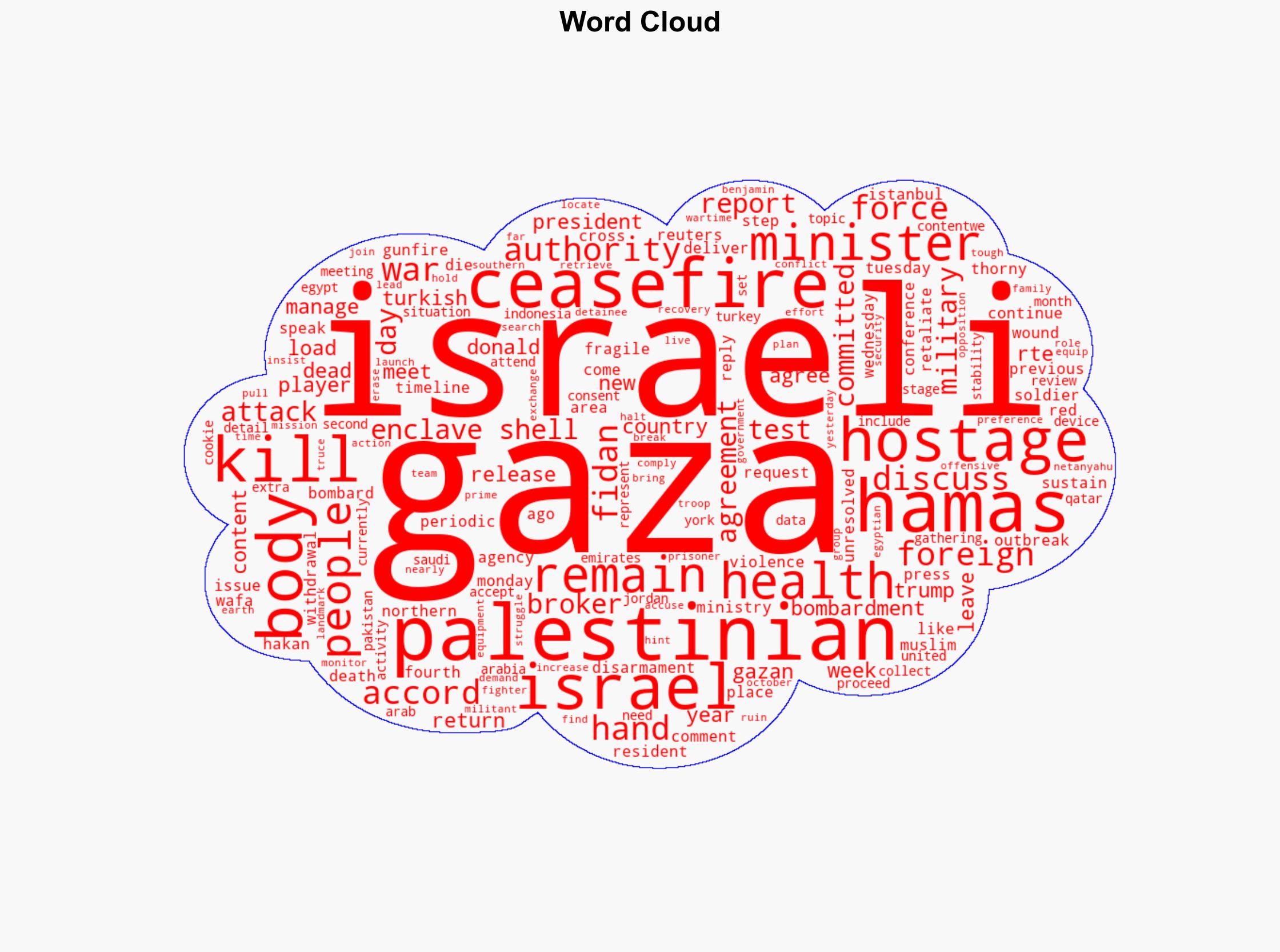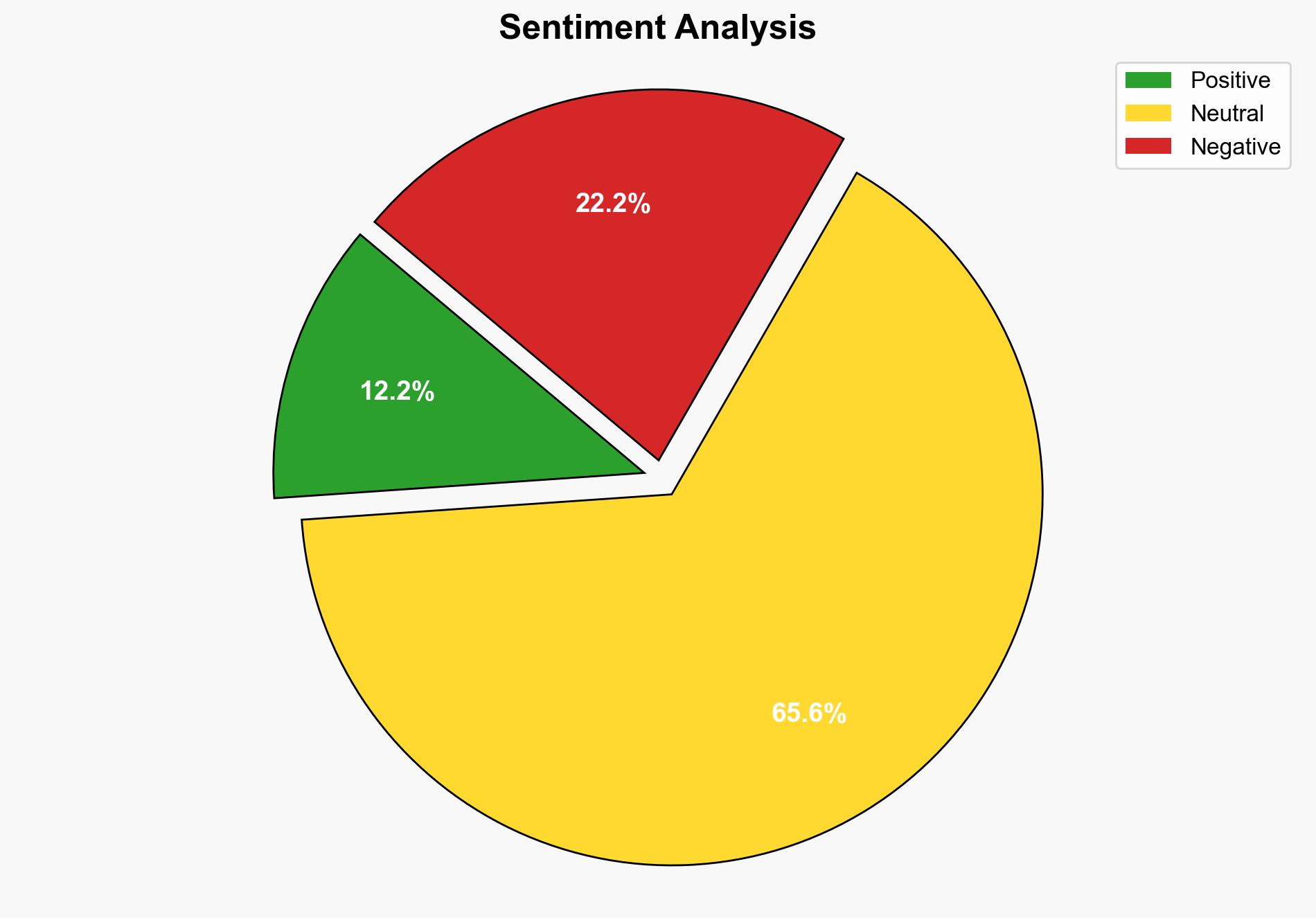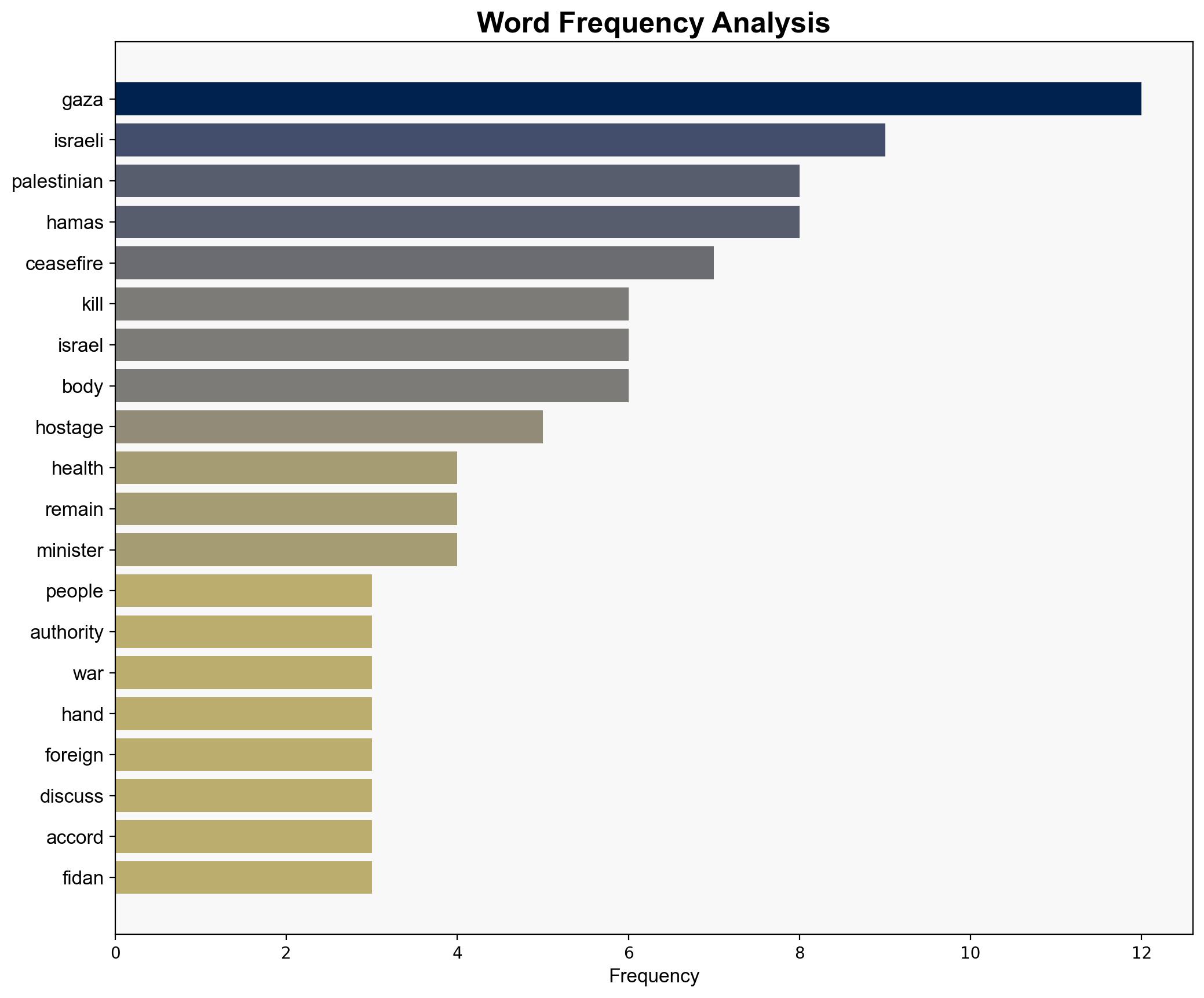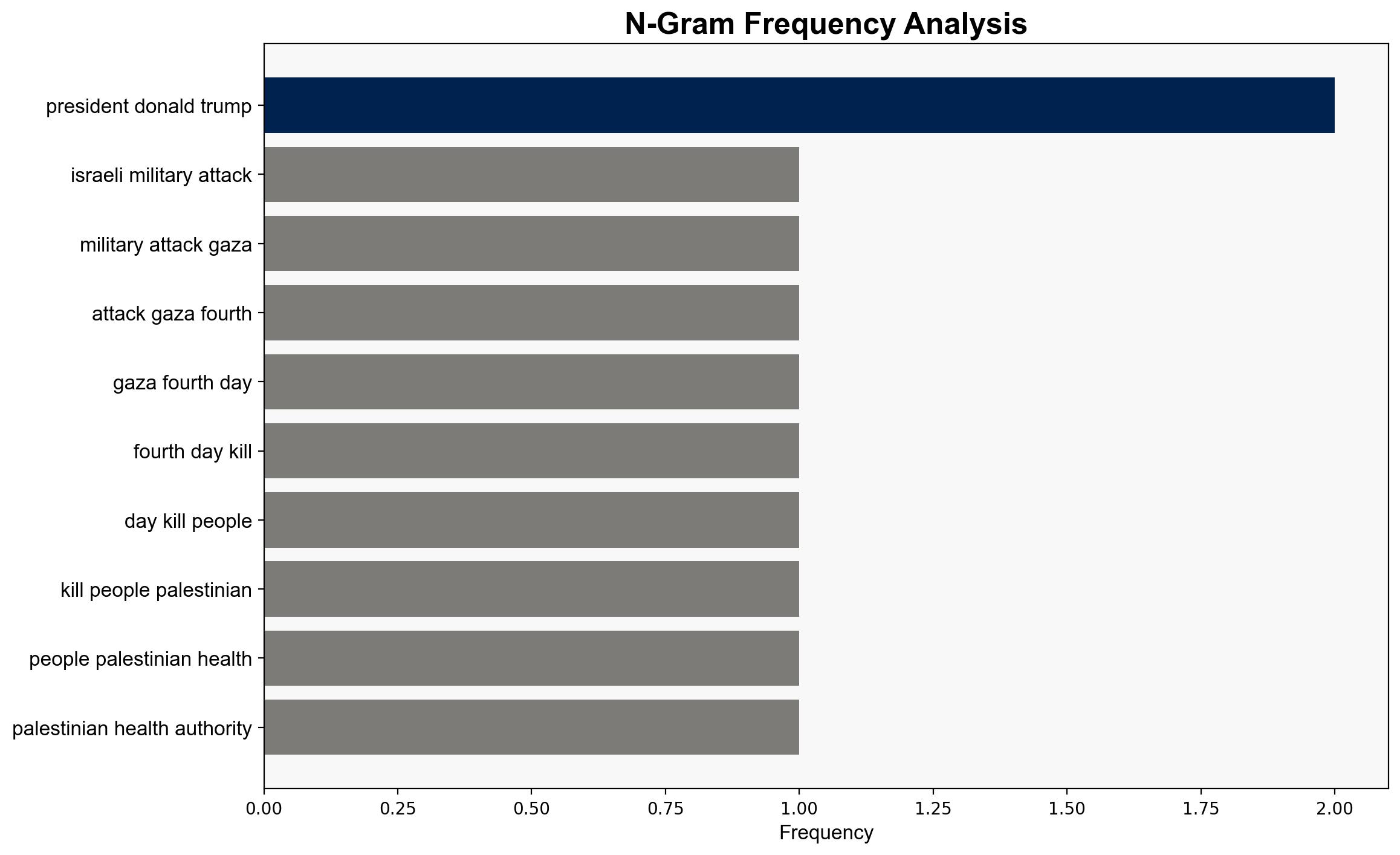Israel returns remains of 30 more Palestinians to Gaza – RTE
Published on: 2025-10-31
Intelligence Report: Israel returns remains of 30 more Palestinians to Gaza – RTE
1. BLUF (Bottom Line Up Front)
The strategic judgment is that the return of Palestinian remains by Israel is a tactical move to maintain the fragile ceasefire, with a moderate confidence level. The most supported hypothesis is that this action is part of a broader strategy to stabilize the region temporarily. Recommended action includes diplomatic engagement to reinforce the ceasefire and address unresolved issues such as disarmament and territorial withdrawal.
2. Competing Hypotheses
Hypothesis 1: Israel’s return of remains is a genuine effort to uphold the ceasefire and reduce tensions in Gaza. This hypothesis suggests that Israel is committed to stabilizing the situation and preventing further escalation.
Hypothesis 2: The return of remains is a strategic maneuver by Israel to gain international favor and buy time while preparing for potential future military actions. This hypothesis implies that Israel’s actions are more about optics and strategic positioning than genuine peace efforts.
Using ACH 2.0, Hypothesis 1 is better supported due to the consistency of actions aligning with ceasefire commitments and the involvement of international actors in monitoring the situation.
3. Key Assumptions and Red Flags
Key assumptions include the belief that both parties are genuinely interested in maintaining the ceasefire. A red flag is the unresolved issue of disarmament, which could lead to future conflict. The assumption that international pressure will sustain the ceasefire may overlook internal political dynamics within Israel and Gaza.
4. Implications and Strategic Risks
The return of remains could temporarily ease tensions but may not address underlying issues, risking future escalations. The unresolved disarmament and territorial withdrawal issues could lead to renewed hostilities. Economically, continued instability could deter investment in the region. Geopolitically, failure to maintain peace could strain relations with regional allies and international stakeholders.
5. Recommendations and Outlook
- Engage in diplomatic efforts to solidify the ceasefire and address unresolved issues, particularly disarmament and territorial disputes.
- Scenario-based projections:
- Best Case: Successful diplomatic negotiations lead to long-term stability.
- Worst Case: Breakdown of ceasefire leads to renewed conflict.
- Most Likely: Periodic tensions with intermittent diplomatic engagements.
6. Key Individuals and Entities
Benjamin Netanyahu, Hakan Fidan, Donald Trump, Hamas, Israeli military, Palestinian health authority.
7. Thematic Tags
national security threats, regional stability, conflict resolution, diplomatic engagement




